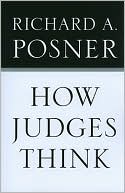Category Books
- Fiction Books & Literature
- Graphic Novels
- Horror
- Mystery & Crime
- Poetry
- Romance Books
- Science Fiction & Fantasy
- Thrillers
- Westerns
- Ages 0-2
- Ages 3-5
- Ages 6-8
- Ages 9-12
- Teens
- Children's Books
- African Americans
- Antiques & Collectibles
- Art, Architecture & Photography
- Bibles & Bible Studies
- Biography
- Business Books
- Christianity
- Computer Books & Technology Books
- Cookbooks, Food & Wine
- Crafts & Hobbies Books
- Education & Teaching
- Engineering
- Entertainment
- Foreign Languages
- Game Books
- Gay & Lesbian
- Health Books, Diet & Fitness Books
- History
- Home & Garden
- Humor Books
- Judaism & Judaica
- Law
- Medical Books
- New Age & Spirituality
- Nonfiction
- Parenting & Family
- Pets
- Philosophy
- Political Books & Current Events Books
- Psychology & Psychotherapy
- Reference
- Religion Books
- Science & Nature
- Self Improvement
- Sex & Relationships
- Social Sciences
- Sports & Adventure
- Study Guides & Test Prep
- Travel
- True Crime
- Weddings
- Women's Studies
How Judges Think »

Authors: Richard A. Posner
ISBN-13: 9780674048065, ISBN-10: 0674048067
Format: Paperback
Publisher: Harvard University Press
Date Published: May 2010
Edition: (Non-applicable)
Author Biography: Richard A. Posner
Richard A. Posner is Circuit Judge, the United States Court of Appeals for the Seventh Circuit, and a senior lecturer at the University of Chicago Law School.
Book Synopsis
From the book:
Ivan Karamazov said that if God does not exist everything is permitted, and traditional legal thinkers are likely to say that if legalism (legal formalism, orthodox legal reasoning, a "government of laws not men," the "rule of law" as celebrated in the loftiest "Law Day" rhetoric, and so forth) does not exist everything is permitted to judges—so watch out! Legalism does exist, and so not everything is permitted. But its kingdom has shrunk and greyed to the point where today it is largely limited to routine cases, and so a great deal is permitted to judges. Just how much is permitted and how they use their freedom are the principal concerns of this book.
. . .
I am struck by how unrealistic are the conceptions of the judge held by most people, including practicing lawyers and eminent law professors, who have never been judges—and even by some judges. This unrealism is due to a variety of things, including the different perspectives of the different branches of the legal profession—including also a certain want of imagination. It is also due to the fact that most judges are cagey, even coy, in discussing what they do. They tend to parrot an official line about the judicial process (how rule-bound it is), and often to believe it, though it does not describe their actual practices. This book parts the curtain a bit.
Publishers Weekly
Posner is unique in the world of American jurisprudence, a highly regarded U.S. appellate judge and a prolific and controversial writer on legal philosophy (The Little Book of Plagiarism). Opinionated, sarcastic and argumentative as ever, Posner is happy to weigh in not only on how judges think, but how he thinks they should think. When sticking to explaining the nine intellectual approaches to judging that he identifies, and to the gap between legal academics and judges, and his well-formulated pragmatic approach to judging, Posner is insightful, accessible, often funny and a model of clarity. When he charges off into longstanding arguments with fellow legal theorists (liberal commentator Ronald Dworkin, for one) or examines doctrinal discrepancies in the opinions of Supreme Court justices, he writes for a far more limited audience. For the record, although Justice Scalia is a favorite target, none of the Supreme Court nine escapes Posner's lethally sharp pen. Posner's two major points-that to a great extent judges make decisions based not on theory but on who they are, their gender, education, class and experiences, and that "the Supreme Court is a political court" regardless of what theory of constitutional interpretation justices claim-are well worthwhile and deeply rooted in common sense and experience. (Apr.)
Copyright © Reed Business Information, a division of Reed Elsevier Inc. All rights reserved.Table of Contents
Introduction 1
Pt. 1 The Basic Model
1 Nine Theories of Judicial Behavior 19
2 The Judge as Labor-Market Participant 57
3 The Judge as Occasional Legislator 78
4 The Mind of the Legislating Judge 93
Pt. 2 The Model Elaborated
5 The Judicial Environment: External Constraints on Judging 125
6 Altering the Environment: Tenure and Salary Issues 158
7 Judicial Method: Internal Constraints on Judging 174
8 Judges Are Not Law Professors 204
9 Is Pragmatic Adjudication Inescapable? 230
Pt. 3 Justices
10 The Supreme Court Is a Political Court 269
11 Comprehensive Constitutional Theories 324
12 Judicial Cosmopolitanism 347
Conclusion 369
Acknowledgments 379
Index 381
Subjects
 General & Miscellaneous Law
General & Miscellaneous Law  Interpretation & Construction of Law
Interpretation & Construction of LawLaw
 Legal Theory & Philosophy
Legal Theory & Philosophy  Jurisprudence
JurisprudenceNonfiction
 Law
Law  General & Miscellaneous Law
General & Miscellaneous LawNonfiction
 Law
Law  Legal Theory & Philosophy
Legal Theory & PhilosophyPolitical Books & Current Events Books
 Law
Law  General & Miscellaneous Law
General & Miscellaneous LawPolitical Books & Current Events Books
 Law
Law  Legal Theory & Philosophy
Legal Theory & Philosophy
